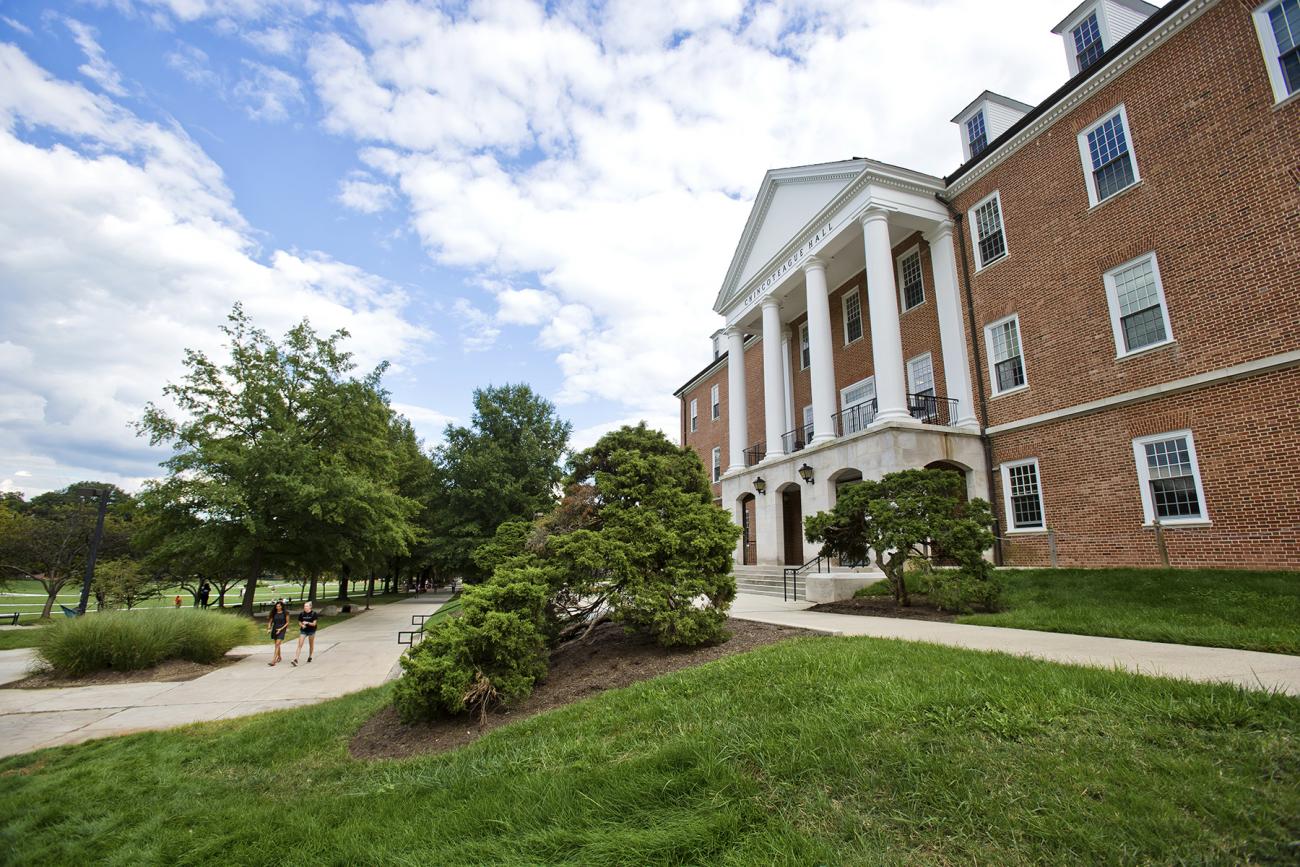The Women’s Initiative for Network Development (WIND) was founded by Dr. Kathleen Cunningham to promote supportive relationships among women faculty and graduate students in GVPT. WIND centers the experience of women as scholars but is open to individuals with other identities and other career paths. Women faculty, both tenure-track and professional track, and graduate students in the Master's and Ph.D. programs are welcome to join.
WIND organizes regular professional development meetings to discuss issues of concern to women scholars, both in the department and in the profession at large. WIND also hosts social events designed to break down barriers between faculty and students at different stages of their careers. Information is a vital resource for understanding barriers and opportunities, and WIND seeks to provide helpful resources.
The WIND listserv is the main form of outreach for the network. If you are a member of the GVPT Department and want to join, please contact the director to be added to the list.
WIND currently is led by Dr. Virginia Haufler (vhaufler [at] umd.edu ()) and graduate assistant Fatima Younis (rding1 [at] umd.edu ()).
Useful resources and readings on gender and intersectionality in political science:
From the Washington Post’s Monkey Cage blog:
A 10-article series on women in political science
From Rebecca Kreitzer:
A compilation of research articles on women in academia
From Amy Smith at Mischiefs of Faction:
What can women (and men) do about gender inequality in academia?
From Kerry Ann Rockquemore and Tracey Laszloffy:
The Black Academic’s Guide for Winning Tenure — And Not Losing Your Soul
(Useful for scholars from all under-represented backgrounds.)
Almasri, Nasir, Blair Read, and Clara Vandeweerdt. 2021. “Mental Health and the PhD: Insights and Implications for Political Science.” PS: Political Science & Politics, 1–7.
Teele, Dawn Langan, and Kathleen Thelen. 2017. “Gender in the Journals: Publication Patterns in Political Science.” PS: Political Science & Politics, 50(2): 433–447.
Argyle, L., & Mendelberg, T. (2020). Improving Women’s Advancement in Political Science: What We Know About What Works. PS: Political Science & Politics, 53(4), 718-722.
Barnes, T., & Beaulieu, E. (2017). Engaging Women: Addressing the Gender Gap in Women’s Networking and Productivity. PS: Political Science & Politics, 50(2), 461-466.
O’Brien, D. (2020). Navigating Political Science as a Woman. PS: Political Science & Politics, 53(2), 315-317.
———
[Español] Martin, María Elena. 2020. “Ciencia política y género: una relación en los márgenes de la disciplina.” Anuario Latinoamericano – Ciencias Políticas y Relaciones Internacionales, 8: 19.
Jordan-Zachery, Julia. 2007. “Am I a Black Woman or a Woman Who Is Black? A Few Thoughts on the Meaning of Intersectionality.” Politics & Gender, 3(2): 254-263.
Jordan-Zachery, Julia. 2014. "'I Ain’t Your Darn Help': Black Women as the Help in Intersectionality Research in Political Science." National Political Science Review, 16: 19-30.
Tools:
From Jane Lawrence Sumner at the University of Minnesota:
Syllabus gender balance assessment tool
From Women Also Know Stuff:
Database highlighting work by women scholars
Professional association recommendations:
Women’s Caucus for Political Science (WCPS)
Midwest Women’s Caucus for Political Science (MWCPS)
APSA Committee on the Status of Women in the Profession
Women in Conflict Studies (WICS)
Women in International Security
Academic Council on the UN System
Global Research in International Political Economy (GRIPE)
Private Sustainability Governance Writing Group and Listserv


